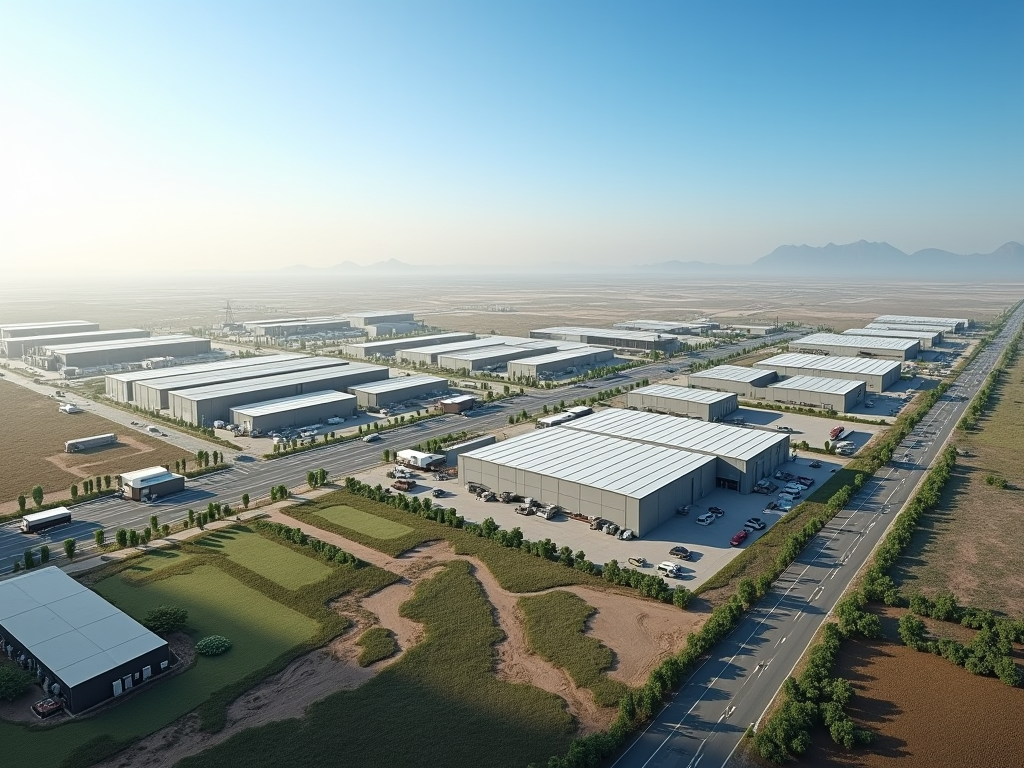KIZAD, or Khalifa Industrial Zone Abu Dhabi, offers a variety of licensing options tailored to support businesses in different sectors. Understanding these options is crucial for entrepreneurs looking to establish their presence in this burgeoning industrial hub. This article delves into the various licensing categories, benefits, and processes involved, ensuring you have a comprehensive overview to make informed decisions for your venture.
Types of Licenses in KIZAD

KIZAD provides several licensing options to accommodate the unique needs of businesses. These licenses are categorized mainly into three types: Industrial Licenses, Commercial Licenses, and Service Licenses. Each license serves specific purposes and is designed to facilitate various operational activities within the zone.
- Industrial Licenses: Ideal for manufacturing and production-oriented businesses, this license allows the establishment of factories and production facilities.
- Commercial Licenses: Suited for trading and retail operations, commercial licenses enable businesses to import, export, and trade goods within the KIZAD environment.
- Service Licenses: These are granted to companies providing services, such as consultancy, logistics, and support services, enhancing the operational ecosystem of KIZAD.
Additionally, companies may also apply for specific permits that align with their business activities, including special licenses for certain industries such as food and pharmaceuticals. Understanding the differences between these licenses allows businesses to align their operations with the correct regulatory framework in KIZAD.
Benefits of Operating in KIZAD

Choosing to establish a business in KIZAD comes with a multitude of benefits that create a favorable environment for both local and international companies. These advantages are designed to streamline operations, reduce costs, and promote growth. Here are some compelling benefits of operating in KIZAD:
- Strategic Location: KIZAD is positioned close to Abu Dhabi, with seamless access to regional and international markets via sea, air, and land.
- Competitive Pricing: The zone offers cost-effective land leases and utility rates that are attractive for businesses looking to maximize their investment.
- Customs Benefits: Businesses benefit from streamlined customs procedures and potentially favorable tariffs, facilitating smoother import and export operations.
- Infrastructure Support: KIZAD is equipped with advanced infrastructure, including transportation networks, utilities, and logistics facilities.
- Business-Friendly Regulations: The regulatory framework in KIZAD is designed to support entrepreneurship, with simplified processes for permits and approvals.
These benefits not only enhance operational efficiency but also provide a solid foundation for long-term growth and expansion. Entrepreneurs should carefully assess these advantages in relation to their business objectives to fully leverage the KIZAD environment.
The Licensing Process in KIZAD
Securing a license in KIZAD involves a structured process designed to ensure compliance and efficiency. Understanding each step will help expedite your licensing journey. Here’s a simplified breakdown of the key stages of the licensing process:
- Application Submission: Interested businesses must submit a license application along with the required documentation, including a business plan and proof of investment.
- Initial Review: The KIZAD licensing authority reviews the application to ensure that it meets the required regulations and standards.
- Site Inspection: A site inspection may be conducted to verify the proposed business location and compliance with zoning and safety regulations.
- License Issuance: Upon successful review and inspection, the business will receive their licensing approval, allowing them to commence operations.
- Post-License Support: KIZAD offers ongoing support to licensed businesses, including assistance with regulatory requirements and operational advisory services.
The entire licensing process is designed to be efficient and user-friendly, promoting a quick turnaround for businesses eager to start their operations in this dynamic industrial zone.
Conclusion
Exploring licensing options in KIZAD reveals a landscape rich with opportunities for various business sectors. With a clear understanding of the types of licenses, benefits of operating in the zone, and the licensing process, entrepreneurs can strategically position their businesses for success. KIZAD not only promises a business-friendly environment but also provides essential support that can propel ventures into thriving enterprises. Establishing a presence in this industrial zone could be the key to unlocking your business’s potential. It’s advisable for prospective business owners to investigate licensing requirements thoroughly and consult with KIZAD authorities to ensure compliance and maximize their opportunities.
Frequently Asked Questions
1. What types of businesses can operate in KIZAD?
KIZAD caters to a broad spectrum of industries, including manufacturing, trading, logistics, and various services. Depending on their needs, businesses can apply for industrial, commercial, or service licenses.
2. How long does the licensing process take in KIZAD?
The timeframe for obtaining a license in KIZAD can vary depending on the complexity of the application but typically ranges from a few weeks to a couple of months.
3. Are there any specific requirements for foreign investors in KIZAD?
Foreign investors are generally welcomed in KIZAD; however, they must comply with certain criteria, such as demonstrating investment capability and adhering to local regulations.
4. What are the advantages of setting up a business in KIZAD compared to other regions?
KIZAD offers unique benefits such as strategic location, competitive pricing, and customs advantages that may not be available in other regions, making it an attractive option for businesses.
5. Can businesses change their license type in KIZAD after establishment?
Yes, businesses can apply to change their license type if their operational needs evolve, subject to KIZAD’s regulations and approval processes.



